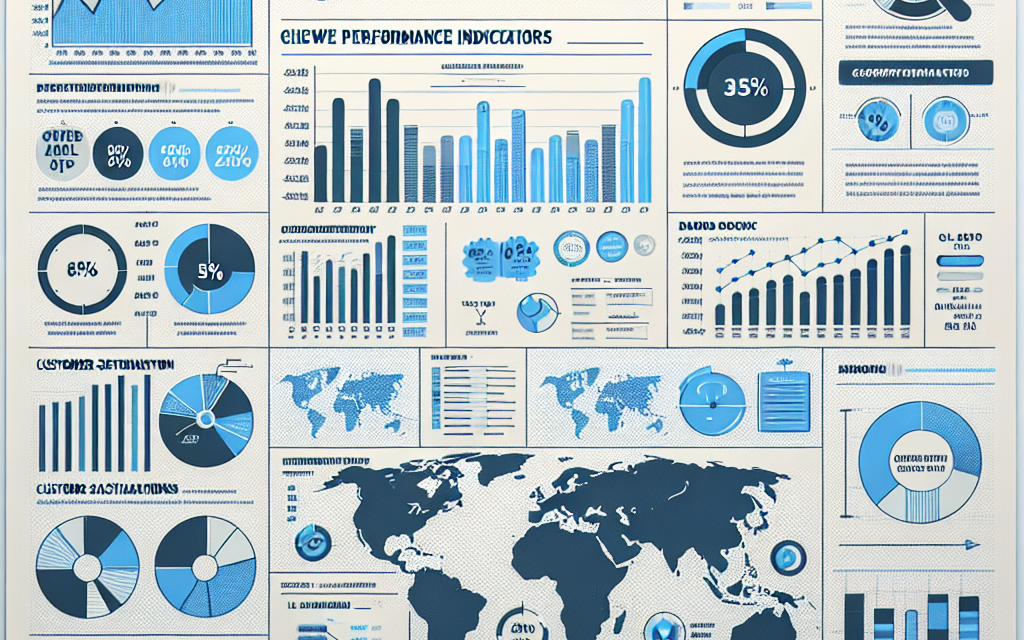“Unlocking Travel Trends: In-Depth Analyst Insights on Expedia Group Inc.”
Introduction
Expedia Group Inc. is a leading online travel agency that provides a comprehensive platform for booking travel services, including flights, hotels, car rentals, and vacation packages. The company operates a diverse portfolio of brands, including Expedia.com, Hotels.com, and Vrbo, catering to a wide range of customer needs in the travel sector. This Analyst Insights Report delves into Expedia Group’s market performance, competitive positioning, financial health, and strategic initiatives. It aims to provide stakeholders with a thorough understanding of the company’s operational dynamics, growth opportunities, and potential challenges in the evolving travel landscape. Through detailed analysis and data-driven insights, this report serves as a valuable resource for investors, industry analysts, and business strategists interested in the travel and hospitality market.
Expedia Group Inc. Financial Performance Analysis
Expedia Group Inc. has established itself as a formidable player in the online travel industry, and its financial performance reflects both the challenges and opportunities inherent in this dynamic sector. Analyzing the company’s financial metrics provides valuable insights into its operational efficiency, revenue generation capabilities, and overall market positioning. In recent quarters, Expedia has demonstrated resilience, particularly in the face of fluctuating travel demand and evolving consumer preferences.
One of the most significant indicators of Expedia’s financial health is its revenue growth. The company has reported a steady increase in gross bookings, which is a critical measure of its performance. This growth can be attributed to a combination of factors, including the resurgence of travel post-pandemic, strategic marketing initiatives, and an expanding portfolio of offerings. Notably, the company’s focus on enhancing its technology infrastructure has allowed it to streamline operations and improve customer experience, thereby driving higher conversion rates.
Moreover, Expedia’s diversification strategy has played a pivotal role in its financial performance. By expanding beyond traditional hotel bookings to include vacation rentals, activities, and travel packages, the company has positioned itself to capture a broader segment of the travel market. This diversification not only mitigates risks associated with reliance on a single revenue stream but also enhances the overall customer value proposition. As travelers increasingly seek comprehensive solutions for their travel needs, Expedia’s ability to offer a one-stop-shop experience has become a significant competitive advantage.
In addition to revenue growth, profitability metrics are crucial for assessing Expedia’s financial performance. The company has made strides in improving its operating margins, which is indicative of effective cost management and operational efficiency. By leveraging data analytics and optimizing its marketing spend, Expedia has been able to reduce customer acquisition costs while simultaneously increasing its market share. This dual approach has resulted in a more favorable bottom line, allowing the company to reinvest in growth initiatives and enhance shareholder value.
Furthermore, the company’s balance sheet reflects a prudent approach to financial management. With a focus on maintaining a healthy liquidity position, Expedia has successfully navigated the uncertainties of the travel industry. The strategic allocation of capital towards technology enhancements and acquisitions has not only fortified its market position but also positioned the company for long-term growth. Investors have responded positively to these efforts, as evidenced by the stock performance, which has shown resilience amid market volatility.
However, it is essential to acknowledge the challenges that lie ahead for Expedia Group Inc. The travel industry remains susceptible to external factors such as economic downturns, geopolitical tensions, and public health crises. These variables can significantly impact consumer behavior and travel demand, posing risks to revenue stability. Additionally, competition within the online travel agency space is intensifying, with new entrants and established players vying for market share. As such, maintaining a competitive edge will require continuous innovation and adaptation to changing market dynamics.
In conclusion, Expedia Group Inc. has demonstrated a commendable financial performance characterized by revenue growth, improved profitability, and a strong balance sheet. While the company faces challenges inherent in the travel industry, its strategic initiatives and diversified offerings position it well for future success. As the travel landscape continues to evolve, the ability to adapt and innovate will be crucial for sustaining growth and enhancing shareholder value. Investors and analysts alike will be closely monitoring Expedia’s performance as it navigates this complex and ever-changing environment.
Market Trends Impacting Expedia Group Inc.
In recent years, the travel and hospitality industry has undergone significant transformations, influenced by various market trends that have a direct impact on companies like Expedia Group Inc. As a leading online travel agency, Expedia is not only a facilitator of travel bookings but also a barometer for broader industry shifts. One of the most prominent trends affecting Expedia is the increasing consumer preference for personalized travel experiences. Modern travelers are seeking tailored itineraries that cater to their unique interests and preferences, which has prompted Expedia to enhance its offerings through advanced data analytics and artificial intelligence. By leveraging these technologies, the company can provide customized recommendations, thereby improving customer satisfaction and loyalty.
Moreover, the rise of mobile technology has reshaped how consumers plan and book their travel. With smartphones becoming ubiquitous, travelers are increasingly using mobile applications to research destinations, compare prices, and make reservations on-the-go. This shift has compelled Expedia to invest heavily in its mobile platform, ensuring that it remains user-friendly and feature-rich. As a result, the company has seen a notable increase in mobile bookings, which now account for a significant portion of its overall revenue. This trend underscores the importance of adapting to technological advancements to meet evolving consumer expectations.
In addition to technological changes, the ongoing recovery from the COVID-19 pandemic has also influenced market dynamics. As travel restrictions have eased, there has been a surge in pent-up demand for leisure travel. This resurgence has provided Expedia with a unique opportunity to capitalize on the rebound, as consumers are eager to explore new destinations after prolonged periods of confinement. However, this recovery is not without its challenges. The industry is grappling with labor shortages and supply chain disruptions, which can affect service delivery and operational efficiency. Consequently, Expedia must navigate these complexities while striving to maintain a competitive edge in a rapidly changing environment.
Furthermore, sustainability has emerged as a critical consideration for travelers, particularly among younger generations who prioritize eco-friendly practices. This growing awareness has prompted Expedia to incorporate sustainable travel options into its platform, allowing consumers to make more environmentally conscious choices. By promoting eco-friendly accommodations and activities, Expedia not only aligns itself with consumer values but also positions itself as a responsible leader in the travel industry. This strategic focus on sustainability is likely to resonate with a significant segment of the market, enhancing brand loyalty and attracting new customers.
Another noteworthy trend is the increasing importance of alternative accommodations, such as vacation rentals and home-sharing services. As travelers seek unique and immersive experiences, platforms like Airbnb have gained popularity, challenging traditional hotel models. In response, Expedia has expanded its portfolio to include a wider range of lodging options, ensuring that it can cater to diverse consumer preferences. This diversification strategy not only enhances Expedia’s competitive positioning but also allows it to tap into new revenue streams.
In conclusion, the market trends impacting Expedia Group Inc. are multifaceted and dynamic, encompassing consumer preferences, technological advancements, and broader industry challenges. By staying attuned to these trends and adapting its strategies accordingly, Expedia is well-positioned to navigate the complexities of the travel landscape. As the company continues to innovate and evolve, it will likely play a pivotal role in shaping the future of travel, ensuring that it meets the needs of a diverse and discerning customer base.
Competitive Landscape for Expedia Group Inc.
In the dynamic landscape of the travel and hospitality industry, Expedia Group Inc. stands as a formidable player, yet it operates within a highly competitive environment characterized by both traditional and emerging rivals. The competitive landscape for Expedia is shaped by various factors, including market share, technological advancements, customer preferences, and the evolving nature of travel itself. As the industry continues to recover from the impacts of the COVID-19 pandemic, understanding the competitive dynamics becomes crucial for stakeholders and investors alike.
Expedia Group Inc. competes with a range of companies, including other online travel agencies (OTAs) such as Booking Holdings, Airbnb, and TripAdvisor. Each of these entities has carved out its niche, with Booking Holdings dominating the global market through its extensive portfolio of brands, including Booking.com and Priceline. This competition is not merely about pricing; it also encompasses the breadth of offerings, user experience, and brand loyalty. For instance, while Expedia provides a comprehensive platform for booking flights, hotels, and car rentals, Airbnb has revolutionized the accommodation sector by offering unique lodging experiences that appeal to a different segment of travelers.
Moreover, the rise of metasearch engines like Kayak and Trivago has added another layer of complexity to the competitive landscape. These platforms aggregate travel options from various sources, allowing consumers to compare prices and services easily. As a result, Expedia must continuously innovate and enhance its platform to retain its customer base and attract new users. The integration of advanced technologies, such as artificial intelligence and machine learning, has become essential for optimizing search results and personalizing user experiences. By leveraging data analytics, Expedia can better understand consumer behavior and preferences, thereby tailoring its offerings to meet the demands of a diverse clientele.
In addition to direct competitors, Expedia faces challenges from traditional travel agencies and newer entrants that leverage technology to disrupt the market. The resurgence of travel agencies, particularly those that specialize in niche markets or personalized travel experiences, highlights a shift in consumer behavior. Many travelers are seeking curated experiences and expert advice, which can sometimes be more effectively provided by human agents than by automated systems. This trend necessitates that Expedia not only enhance its digital offerings but also consider partnerships or acquisitions that could bolster its service capabilities.
Furthermore, the competitive landscape is influenced by external factors such as economic conditions, regulatory changes, and shifts in consumer sentiment. The travel industry is particularly sensitive to economic fluctuations, as disposable income levels directly impact travel spending. Additionally, geopolitical events and health crises can lead to sudden changes in travel patterns, forcing companies like Expedia to adapt quickly. The ongoing emphasis on sustainability and responsible travel is also reshaping consumer expectations, prompting Expedia to incorporate eco-friendly options into its offerings.
As Expedia Group Inc. navigates this multifaceted competitive landscape, its ability to innovate and respond to market trends will be critical. The company’s strategic initiatives, including investments in technology and partnerships with other travel service providers, will play a significant role in maintaining its competitive edge. Ultimately, the success of Expedia will depend on its capacity to not only meet the evolving needs of travelers but also to anticipate future trends in the travel industry. By remaining agile and responsive to the competitive dynamics at play, Expedia can continue to thrive in an increasingly complex market.
Future Growth Projections for Expedia Group Inc.
Expedia Group Inc. has established itself as a formidable player in the travel and hospitality industry, and as the market continues to evolve, analysts are keenly focused on the company’s future growth projections. The travel sector is experiencing a resurgence following the disruptions caused by the COVID-19 pandemic, and Expedia is well-positioned to capitalize on this recovery. Analysts predict that the company will benefit from a combination of increased consumer demand, strategic investments, and technological advancements that enhance user experience.
One of the primary drivers of growth for Expedia Group is the anticipated increase in travel demand. As restrictions ease and consumer confidence returns, more individuals are expected to book trips, both domestically and internationally. This trend is supported by a growing desire for experiential travel, which has gained traction among younger generations. Analysts note that Expedia’s diverse portfolio of brands, including Hotels.com, Vrbo, and Trivago, allows the company to cater to a wide range of customer preferences, thereby expanding its market reach. Furthermore, the rise of remote work has led to a shift in travel patterns, with more people seeking longer stays and unique accommodations, a segment where Expedia’s offerings can thrive.
In addition to the favorable market conditions, Expedia Group’s strategic investments in technology are likely to play a crucial role in its growth trajectory. The company has been focusing on enhancing its digital platforms to provide a seamless booking experience for users. By leveraging data analytics and artificial intelligence, Expedia aims to personalize travel recommendations, streamline the booking process, and improve customer service. Analysts believe that these technological advancements will not only attract new customers but also foster loyalty among existing users, ultimately driving revenue growth.
Moreover, Expedia’s commitment to sustainability is becoming increasingly relevant in today’s travel landscape. As consumers become more environmentally conscious, companies that prioritize sustainable practices are likely to gain a competitive edge. Expedia has made strides in promoting eco-friendly travel options and supporting sustainable tourism initiatives. Analysts suggest that by aligning its business model with the values of modern travelers, Expedia can enhance its brand reputation and attract a broader customer base.
While the outlook for Expedia Group appears promising, it is essential to consider potential challenges that could impact growth. The travel industry remains susceptible to external factors such as economic fluctuations, geopolitical tensions, and public health crises. Additionally, competition within the online travel agency space is intensifying, with both established players and new entrants vying for market share. Analysts emphasize the importance of agility and innovation in navigating these challenges, as companies that can adapt quickly to changing circumstances are more likely to succeed.
In conclusion, the future growth projections for Expedia Group Inc. are largely optimistic, driven by a combination of increasing travel demand, strategic technological investments, and a commitment to sustainability. As the company continues to evolve in response to market trends and consumer preferences, it is well-positioned to capture new opportunities in the travel sector. However, maintaining a proactive approach to potential challenges will be crucial for sustaining its growth momentum. Overall, analysts remain confident in Expedia’s ability to thrive in the dynamic landscape of the travel industry, making it a company to watch in the coming years.
Key Risks Facing Expedia Group Inc.
Expedia Group Inc., a leading online travel agency, operates in a dynamic and competitive environment that presents various risks that could impact its performance and growth trajectory. Understanding these risks is crucial for investors and stakeholders who seek to navigate the complexities of the travel industry. One of the primary risks facing Expedia is the inherent volatility of the travel sector, which is influenced by a multitude of factors including economic conditions, geopolitical events, and public health crises. For instance, the COVID-19 pandemic significantly disrupted global travel, leading to unprecedented declines in bookings and revenue. Although the industry has shown signs of recovery, the potential for future outbreaks or similar disruptions remains a concern that could adversely affect Expedia’s operations.
In addition to external shocks, Expedia is also exposed to competitive pressures from both traditional travel agencies and emerging online platforms. The travel industry is characterized by low barriers to entry, which allows new players to enter the market and vie for market share. This competition can lead to price wars, reduced margins, and increased marketing expenditures, all of which can strain profitability. Furthermore, established competitors such as Booking Holdings and Airbnb continue to innovate and expand their offerings, which may challenge Expedia’s market position. As a result, maintaining a competitive edge through technology, customer service, and unique offerings is essential for the company to sustain its growth.
Another significant risk is the reliance on third-party suppliers, including airlines, hotels, and car rental companies. Expedia’s business model depends heavily on these partnerships to provide a comprehensive range of travel services to its customers. Disruptions in the supply chain, such as changes in pricing, availability, or service quality from these suppliers, can negatively impact customer satisfaction and, consequently, Expedia’s reputation. Moreover, any adverse changes in the regulatory environment affecting these suppliers could also pose risks to Expedia’s operations. For instance, increased regulations on airlines or hotels could lead to higher costs that may be passed on to consumers, potentially reducing demand for travel services.
Additionally, the company faces risks related to technology and cybersecurity. As a digital platform, Expedia relies on sophisticated technology to manage its operations and deliver services to customers. However, the increasing frequency of cyberattacks poses a significant threat to the integrity of its systems and the security of customer data. A successful breach could not only result in financial losses but also damage the company’s reputation and erode customer trust. Therefore, investing in robust cybersecurity measures and maintaining compliance with data protection regulations is imperative for mitigating these risks.
Lastly, fluctuations in foreign exchange rates can also impact Expedia’s financial performance, particularly as it operates in multiple countries and currencies. Currency volatility can affect the company’s revenue and expenses, leading to unpredictable financial results. To manage this risk, Expedia must employ effective hedging strategies and maintain a diversified portfolio of international operations.
In conclusion, while Expedia Group Inc. has established itself as a leader in the online travel industry, it must navigate a landscape fraught with risks. From external shocks and competitive pressures to supplier dependencies and technological vulnerabilities, the company faces challenges that require proactive management and strategic foresight. By addressing these risks effectively, Expedia can position itself for sustainable growth in an ever-evolving market.
Strategic Initiatives by Expedia Group Inc.
Expedia Group Inc. has consistently demonstrated a commitment to innovation and strategic growth, positioning itself as a leader in the travel and hospitality industry. The company’s strategic initiatives are designed to enhance customer experience, expand market reach, and leverage technology to streamline operations. One of the primary focuses of Expedia Group is the enhancement of its digital platforms. By investing in user-friendly interfaces and personalized travel solutions, the company aims to create a seamless booking experience for its customers. This commitment to digital transformation is evident in the continuous updates to its mobile applications and websites, which are designed to cater to the evolving preferences of modern travelers.
Moreover, Expedia Group has recognized the importance of data analytics in understanding consumer behavior. By harnessing big data, the company can tailor its offerings to meet the specific needs of its diverse customer base. This data-driven approach not only improves customer satisfaction but also enables Expedia to optimize its marketing strategies, ensuring that promotional efforts are effectively targeted. As a result, the company can enhance its competitive edge in a crowded marketplace.
In addition to improving its digital capabilities, Expedia Group is actively pursuing strategic partnerships and acquisitions to broaden its service offerings. Collaborations with airlines, hotels, and local attractions allow the company to provide comprehensive travel packages that appeal to a wide range of customers. These partnerships not only enhance the value proposition for travelers but also create synergies that can lead to cost savings and increased operational efficiency. For instance, by integrating services with airlines, Expedia can offer bundled deals that simplify the travel planning process, making it more attractive for consumers.
Furthermore, sustainability has emerged as a critical focus for Expedia Group. The company is increasingly aware of the environmental impact of travel and is taking steps to promote sustainable tourism practices. By partnering with eco-friendly hotels and promoting carbon offset programs, Expedia aims to appeal to environmentally conscious travelers. This initiative not only aligns with global sustainability goals but also positions the company favorably among a growing demographic that prioritizes responsible travel.
Expedia Group is also investing in technology to enhance its customer service capabilities. The implementation of artificial intelligence and machine learning tools allows the company to provide real-time support and personalized recommendations. This technological advancement not only improves operational efficiency but also fosters customer loyalty by ensuring that travelers receive timely assistance and relevant suggestions throughout their journey.
In addition to these initiatives, Expedia Group is expanding its global footprint by entering emerging markets. By tailoring its offerings to local preferences and investing in localized marketing strategies, the company aims to capture a larger share of the growing travel market in regions such as Asia and Latin America. This strategic expansion not only diversifies revenue streams but also mitigates risks associated with economic fluctuations in established markets.
In conclusion, Expedia Group Inc. is actively pursuing a multifaceted strategy that encompasses digital innovation, strategic partnerships, sustainability, and global expansion. By focusing on these key areas, the company is well-positioned to navigate the complexities of the travel industry and continue delivering value to its customers. As the landscape of travel continues to evolve, Expedia’s proactive approach to strategic initiatives will likely play a crucial role in its long-term success and market leadership.
Consumer Behavior Trends Affecting Expedia Group Inc
In recent years, consumer behavior trends have significantly influenced the travel industry, and Expedia Group Inc. has been at the forefront of adapting to these changes. As travelers increasingly seek personalized experiences, the demand for tailored travel solutions has surged. This shift in consumer expectations has prompted Expedia to enhance its offerings, focusing on customization and user experience. By leveraging data analytics and artificial intelligence, the company is able to provide recommendations that align with individual preferences, thereby fostering customer loyalty and satisfaction.
Moreover, the rise of mobile technology has transformed how consumers plan and book their travel. With smartphones becoming ubiquitous, travelers now prefer to access travel services through mobile applications. This trend has led Expedia to invest heavily in its mobile platform, ensuring that users can easily browse, compare, and book travel options on-the-go. The convenience of mobile booking not only streamlines the travel planning process but also allows Expedia to engage with customers in real-time, offering timely promotions and updates that enhance the overall travel experience.
In addition to technological advancements, the growing emphasis on sustainability has reshaped consumer behavior in the travel sector. More travelers are becoming environmentally conscious, seeking eco-friendly options and sustainable practices from travel providers. In response, Expedia Group has made strides in promoting sustainable travel choices, such as highlighting eco-friendly accommodations and offering carbon offset options. By aligning its business practices with the values of environmentally aware consumers, Expedia not only meets market demand but also positions itself as a responsible leader in the travel industry.
Furthermore, the COVID-19 pandemic has had a profound impact on consumer behavior, leading to a heightened focus on health and safety. Travelers are now more cautious and informed about their choices, prioritizing hygiene and flexibility in their travel plans. In light of this trend, Expedia has implemented enhanced safety protocols and flexible booking options, allowing customers to modify or cancel their reservations with ease. This adaptability has been crucial in rebuilding consumer trust and encouraging travel in a post-pandemic world.
As the travel landscape continues to evolve, the importance of social media and online reviews cannot be overstated. Consumers increasingly rely on peer recommendations and user-generated content when making travel decisions. This trend has prompted Expedia to enhance its online presence and engage with customers through various social media platforms. By fostering a community of travelers who share their experiences and insights, Expedia not only builds brand loyalty but also creates a valuable feedback loop that informs its service offerings.
In conclusion, the consumer behavior trends affecting Expedia Group Inc. are multifaceted and dynamic. The company’s ability to adapt to these trends—whether through technological innovation, a commitment to sustainability, enhanced safety measures, or active engagement on social media—will be pivotal in shaping its future success. As travelers continue to seek personalized, convenient, and responsible travel options, Expedia’s responsiveness to these evolving preferences will determine its competitive edge in the ever-changing travel landscape. By staying attuned to consumer needs and preferences, Expedia Group Inc. is well-positioned to navigate the complexities of the travel industry and thrive in the years to come.
Q&A
1. **What is Expedia Group Inc.?**
– Expedia Group Inc. is an online travel company that operates a range of travel fare aggregators and travel metasearch engines, providing services for booking hotels, flights, car rentals, and vacation packages.
2. **What are the key financial metrics for Expedia Group Inc.?**
– Key financial metrics typically include revenue, net income, earnings per share (EPS), and operating margin. For the latest figures, refer to the most recent financial statements.
3. **What are the growth prospects for Expedia Group Inc.?**
– Growth prospects may include expansion into new markets, increased demand for travel post-pandemic, and enhancements in technology and user experience.
4. **What challenges does Expedia Group Inc. face?**
– Challenges may include competition from other travel platforms, fluctuations in travel demand, regulatory changes, and economic downturns affecting consumer spending.
5. **How does Expedia Group Inc. leverage technology?**
– Expedia Group Inc. leverages technology through advanced algorithms for pricing, personalized recommendations, mobile app development, and data analytics to enhance customer experience.
6. **What is the outlook for Expedia Group Inc. stock?**
– The outlook for Expedia Group Inc. stock can vary based on market conditions, company performance, and analyst ratings. Investors should consider recent analyst insights and market trends.
7. **What are the recent strategic initiatives by Expedia Group Inc.?**
– Recent strategic initiatives may include partnerships with airlines and hotels, investments in marketing, and efforts to improve sustainability in travel offerings.
Conclusion
Expedia Group Inc. has demonstrated resilience and adaptability in the travel industry, leveraging technology and strategic partnerships to enhance customer experience and drive growth. Analysts highlight the company’s strong recovery post-pandemic, with increasing demand for travel services and a focus on expanding its market share. However, challenges such as competition, economic fluctuations, and operational costs remain. Overall, the outlook for Expedia Group Inc. is cautiously optimistic, with potential for continued growth if it effectively navigates these challenges.





